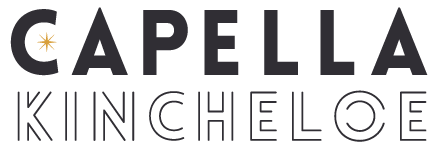3 Money Habits to Grow Your Biz
Here's a little secret about me: I despise the financial/accounting parts of running my business. So much so, there have been times that I try to ignore it altogether, forget it exists. I just want to create!
Please don't do this. This doesn't help your business grow. And ignoring your financials does not make them disappear.
Here is where creating some money habits in your business is going to come in handy. Because you are going to make them habits and habits by definition are something you do regularly. You are going to be motivated because you know that keeping an eye on your money is going to help your business grow and run more smoothly. Easier.
Read Financial Reports Monthly
There are two reports that you need to keep your eye on: the income statement and balance sheet. These reports should be available in your accounting program (upgrade if not) or from your bookkeeper.
The balance sheet looks at the financial strength of your company and the income statement shows profit & loss, sales and expenses. In these reports you want to keep an eye on how much money you’re owed (accounts receivable) and how much you owe (accounts payable). You'll be able to see monthly net income and total revenue. I also keep an eye on my year-to-date revenue. I look at my time billing and time billing income.
Creating the money habit of reviewing your financial reports once a month will give you a snapshot of how your business is doing and if there are areas that need improvement, like better collecting of receivables or requiring 100% deposit.
Separate Business Accounts
Checking, Savings, Credit Card, Paypal. If you don't have your business accounts separate from your personal accounts you're not running a business. You have a hobby. Which is fine, if that is what you want. If you want to run a business you must have separate accounts.
Having separate accounts increases your credibility as a business owner to vendors, to the IRS, to clients. Obviously, it is much easier at tax time to determine what are business-related expenses and avoid getting into trouble with the IRS. If your company structure is anything but a sole proprietor, you can be putting your personal assets at risk by "piercing the corporate veil". As a sole proprietor, you mix your business and personal assets, but other structures provide some protections to both asset types. Mingling funds throw those protections out the window. Meaning if your business is sued, your personal assets could get taken.
Billing Systems
Don't skip creating this money habit! Creating systems in your business help create space for you to be creative because you don't have to decide what to do - the system is already there. One place to start is how you are going to get paid. A big one, right? How are you going to keep money coming into your business? You'll want to create a system for your billing, how you bill, when you bill, what happens when clients don't pay, etc. I am a firm believer in choosing one way to charge and sticking with it. Don't charge different markups or hourly rates for different clients, keep it simple and easy. Also, let your clients know when you will bill them; bi-monthly, every 20 hours, weekly, etc. Choose a schedule and stick to it. Creating billing systems is a great money habit because it establishes consistency and professionalism. Check out this post for help in creating your systems.
Now what? Take out your calendar and make three appointments with yourself. Schedule one towards the end of the month to print your financial reports and sit down with them for 30-60 minutes. Schedule another one to head to the bank and set up separate business accounts. And lastly, schedule an hour to have a conversation with yourself on the billing systems you are going to create - this will just be a brainstorming session. At the end of that session, write in another hour later that week to really get those systems down on paper. If it's not scheduled it's not real.
Like this article? Share with a fellow designer. #collaborationovercompetition

